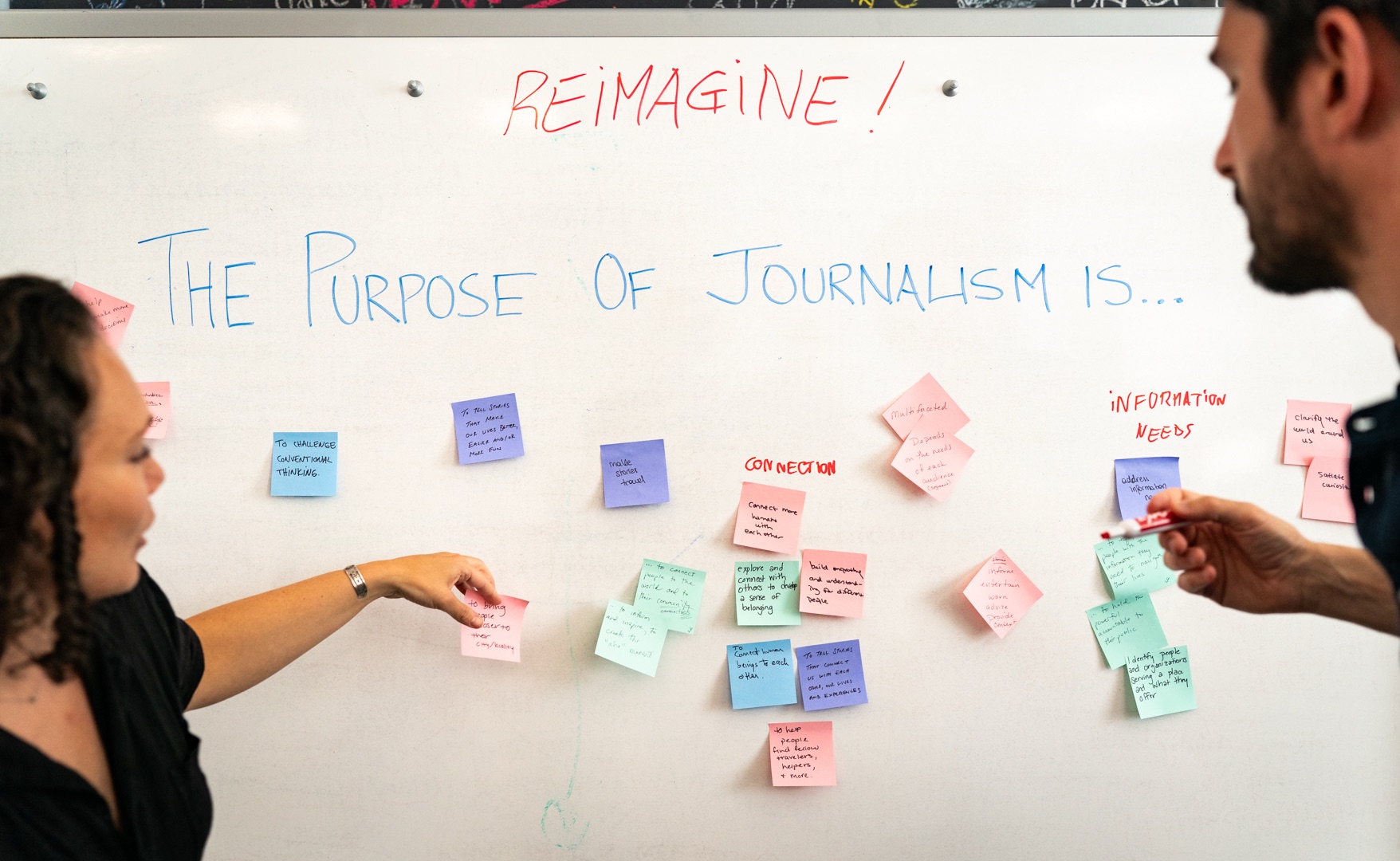In 2016 we founded the Device Lab to provide a hub for the exploration of AR/VR storytelling on campus. In addition to providing access to these technologies for Medill and the wider Northwestern community, we’ve also pursued a wide variety of research and experimental content development projects. We’ve built WebVR timelines of feminist history and looked into the inner workings of ambisonic audio. We’ve built virtual coral reefs and prototyped an AR experience setting interviews with important figures from Bronzeville and Pilsen in parks in those neighborhoods.

Because we’re working with emerging technologies, we’ve always known that it would be more important to create opportunities for student staff to grow than to look for students with a particular existing skill set. When the lab initially launched, we hired students interested in exploring immersive media to monitor the lab during daily drop-in hours. Over the course of that first year we realized that few people were taking advantage of those open hours. We worked with students to help them acquire AR/VR production skills during the time between visitors. As our team’s skills grew, we created a few small teams to prototype with interesting new technologies and work with community partners. This fluid approach to worked well because the tools and processes involved in creating immersive media were so young and unstable. Nearly three years after the first commercial release of the Oculus Rift, while these things are still constantly evolving, we have a better idea of where things are going and what we want to do with them. This year, we took a more strategic approach to designing the device lab fellowship, encouraging students to apply to one of three different teams, each of which is designed to further the work we do at the lab.
One of our biggest priorities was to build a structured way for students to start working with AR/VR tech early in their academic careers, so we created the Equipment Manager position. Equipment managers do the important work of keeping the lab organized and maintaining devices while also developing fluency in immersive media and demonstrating equipment to lab guests.Creating a position with no technical or production skill prerequisites lets us communicate to underclassmen and students who may not identify as technical that we believe they can make valuable contributions to this space. Working as an equipment manager gives students the opportunity to decide if they’re interested in building VR/AR skills early in their career and provides a strong foundation for contributing to one of the other device lab teams.

The Librarian team was born out of our affection for community librarians and the need to organize, classify and think critically about the tremendous volume of AR/VR content being produced. The librarian team provides curatorial guidance on new content acquisitions and is also responsible for communicating how we’re thinking about this content to the broader Northwestern community and beyond. Sometimes that means hosting themed VR events on campus, sometimes it means starting a conversation online. We care deeply about being engaged in the pursuit of the answer to “What makes a good VR story?” In order to engage with this question in a public way, we started an Instagram account where the device lab librarians recap VR experiences, with an emphasis on narrative content. Just as the answer to “What makes a good VR story?” is an ongoing exploration, so is “What is valuable VR criticism?” While we’re interested in more long form criticism, and we’re excited to see how this project changes as it develops, setting up on Instagram gave us a lightweight way to publish and start figuring things out in public.
The third team working out of the device lab is the Explainer Lab. The Explainer Lab builds and researches new forms of visual nonfiction storytelling. These students are generally juniors, seniors or graduate students and have either worked at the lab previously or bring other significant experience working on teams in a technical or storytelling capacity. The students and professional staff in the Explainer lab work collaboratively to select and develop projects. This Fall, we worked on an interactive introduction to 3d web graphics, a history of video games and a documentary project about public art in Chicago. We’re currently experimenting with applying spatialized audio to 360 photojournalism, wrapping up development on a location based AR game about climate change and looking at how immersive infographics can help people understand complex processes. Since Explainer Lab projects often serve as proof of concepts for the Knight Lab Studio class, we look for fellows who have a proven history of learning new things independently.
Like a lot of our colleagues in this space, the biggest challenge we have is determining priorities and focus. With so many exciting releases happening all the time, how do we choose what to invest in? How do we build meaningful expertise while keeping abreast of new developments across a broad domain? As AR and VR mature, so must the way we engage with them. Bringing this new structure to the team is one of the ways we try to address that.
About the author





